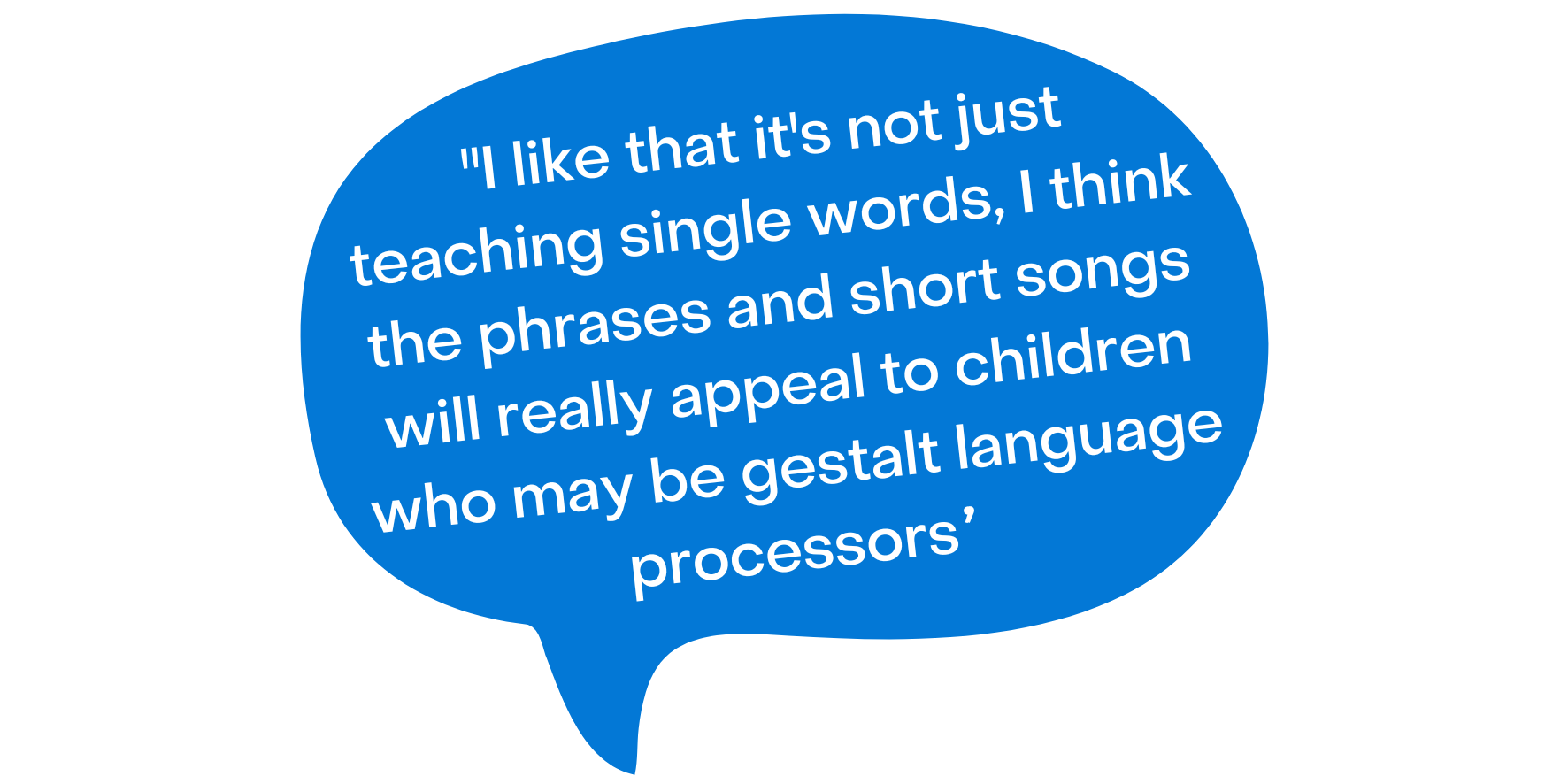
How TalkiPlay supports gestalt language processors
Language development is more than just learning words. It's also about how we think, feel and connect with others. Children may learn to communicate in different ways. Some may start with sounds and words, and then build up to sentences and stories. Others may start with scripts and phrases that are rich in melody and emerge from compelling emotional experiences. These are both valid ways of developing meaningful communication.
It’s no surprise that with the growing understanding of neurodiversity and the recognition that humans perceive the world, think, make connections, and communicate in various equally valid ways, there would be different pathways of development leading to autonomous communication.
Some children may not develop language through the most well-socialised analytical pathway, but instead, they learn through personally relevant scripts. Their language may begin with strings of words or sounds that are rich in intonation and melody.
Speech pathologists in partnership with the families we support are recognising through anecdotal evidence and an increasing body of supporting research, that it is not always clear how a child will develop language. Therefore, we need to ensure we provide appropriate language stimulation for all types of learners.
TalkiPlay does just that:
- Vocabulary themes are chosen based on the experiences that children are drawn to, building the internal motivation to share what they are discovering with their important people.
- Our TalkiPlayers voice is melodic, free of additional noise or interference and is set at a frequency that captures and holds the attention of little learners.
- The voice output is predictable and allows for child-led repetition which is soothing for the brain and lays down the neural pathways for language learning.
- The recorded spoken responses, including “Hi. I am a car” or “I drive on the road” may be adopted by a child as ‘echolalia’, or a script and become the launchpad to subsequent language development.
“Play-based, child-led therapy for kids who communicate with scripting will allow for their spontaneous language to be heard.”
Alexandria Zachos, M.S., CCC-SLP
Meaningfulspeech on Instagram
